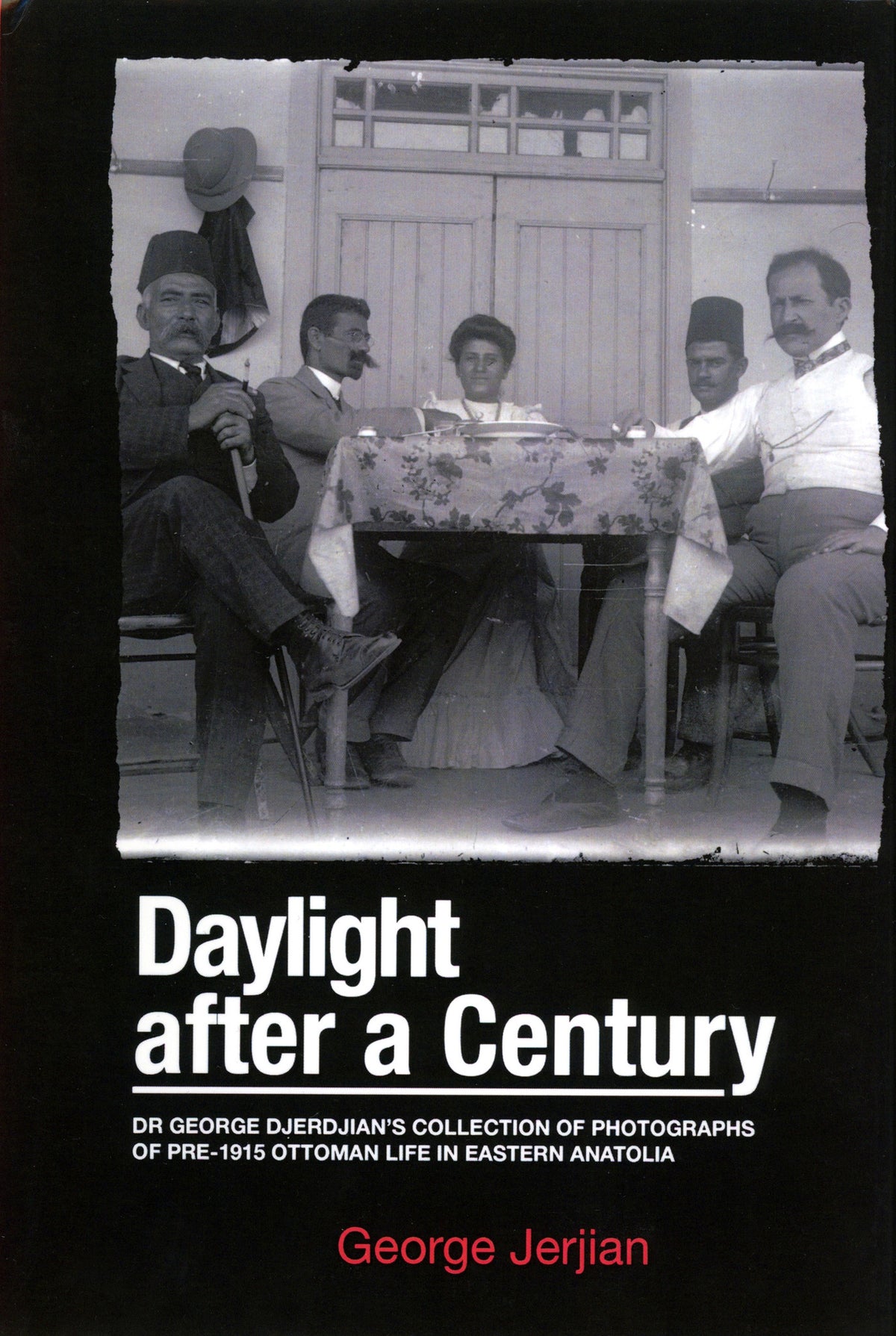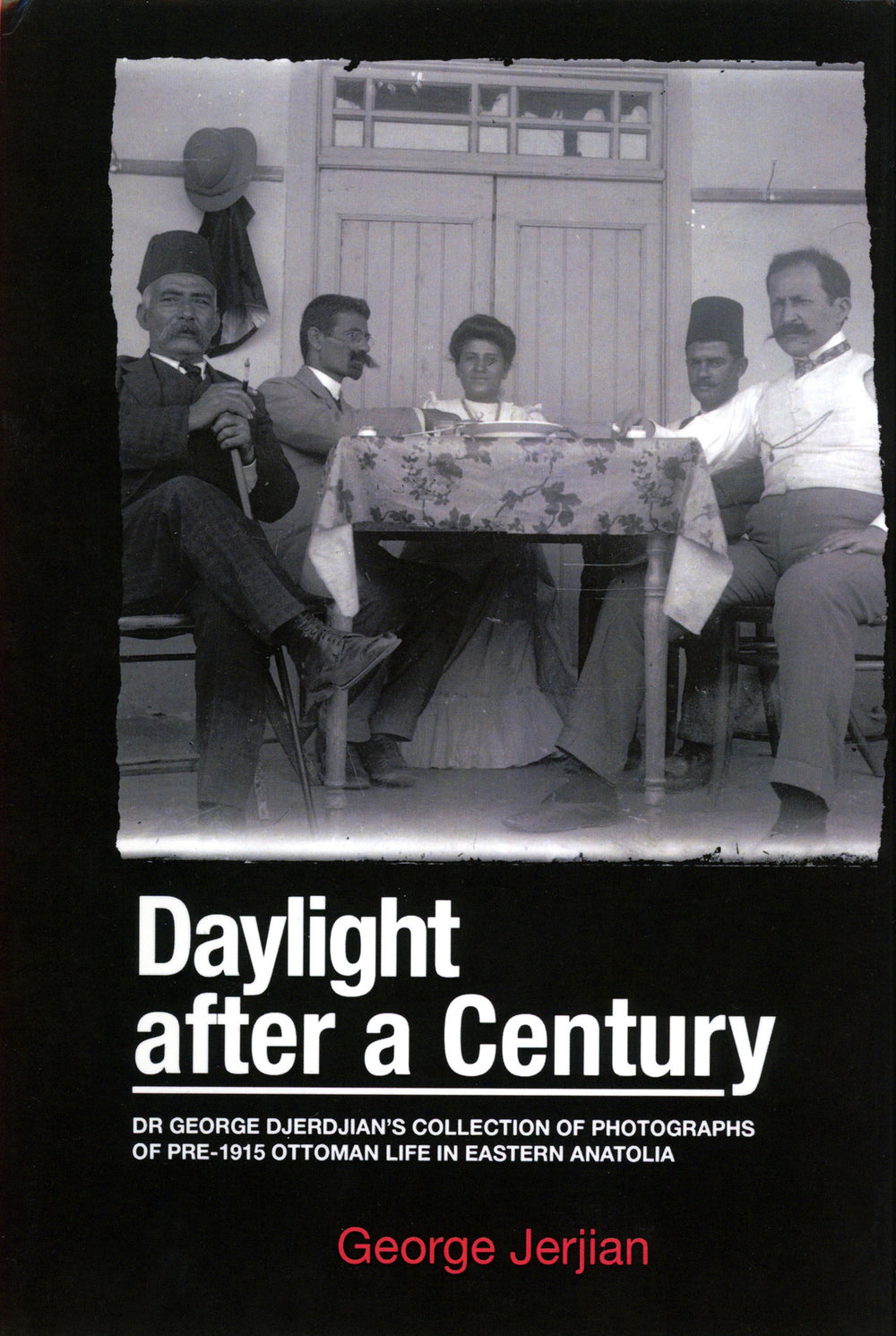By George Jerjian
Dr. George Djerdjian (1870-1947), grandfather of the writer, took 240 photographs of his hometown of Arabkir and his college town of Erzeroum between 1900 and 1907, of which only about 100 survive. These photographs capture the way of life of a people that within a decade would become extinct in Anatolia, their homeland for over 3,000 years. The photographs are varied and have been arranged under separate headings such as water, land, people, churches, schools, economic life, social life, and political life. For over a century, these photographs were stored in a grey steel box, which migrated from Arabkir to Alexandria, Egypt, where it stayed for almost 50 years. Then it moved with descendants to Khartoum, Sudan, where it stayed for 20 years, then onto London, England for 30 years, and then to Washington DC for about 10 years. Now this collection of photographs has finally been exposed to daylight after a century of darkness.
- Gallery
- Description


By George Jerjian
Dr. George Djerdjian (1870-1947), grandfather of the writer, took 240 photographs of his hometown of Arabkir and his college town of Erzeroum between 1900 and 1907, of which only about 100 survive. These photographs capture the way of life of a people that within a decade would become extinct in Anatolia, their homeland for over 3,000 years. The photographs are varied and have been arranged under separate headings such as water, land, people, churches, schools, economic life, social life, and political life. For over a century, these photographs were stored in a grey steel box, which migrated from Arabkir to Alexandria, Egypt, where it stayed for almost 50 years. Then it moved with descendants to Khartoum, Sudan, where it stayed for 20 years, then onto London, England for 30 years, and then to Washington DC for about 10 years. Now this collection of photographs has finally been exposed to daylight after a century of darkness.

